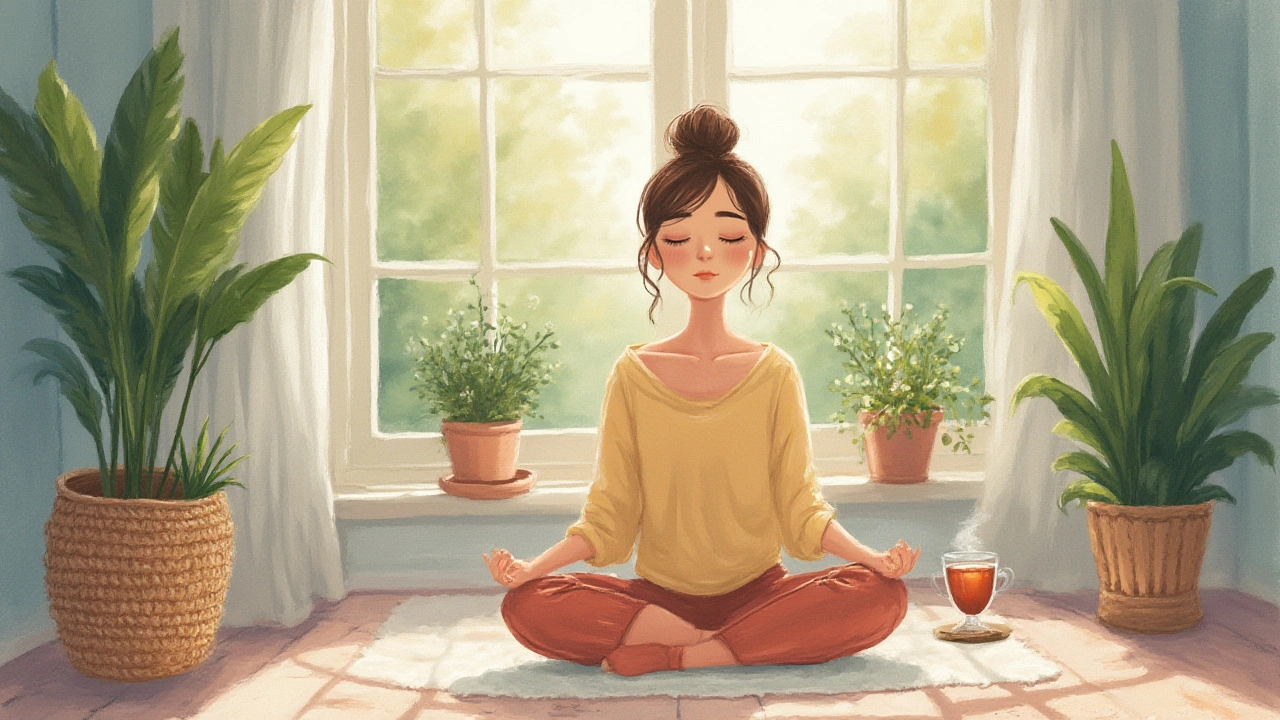Feeling wired and tired of quick fixes? You don’t need pills or expensive gear to feel calmer. Small, natural shifts in what you breathe, move, and drink can lower stress fast and keep it down for the long run. Below are clear, step-by-step techniques you can use today—no fluff, just things that work.
Start with your breath. Try box breathing: inhale 4 counts, hold 4, exhale 4, hold 4. Do this for 2–5 minutes when you feel tense. Research shows slow, deep breathing signals your nervous system to relax—your heart rate and tension drop fast.
Try progressive muscle relaxation: tense a muscle group for 5 seconds, then release and notice the feeling. Move from toes to head. This helps your body tell the brain it’s safe to let go.
Grounding works when anxiety spikes. Look around and name: 3 things you see, 2 you can touch, 1 you can smell. It brings you back to now and calms racing thoughts.
Move, but keep it easy. A 20–30 minute brisk walk in fresh air lowers stress hormones and clears your head. If you can, add short bursts of stretching or gentle yoga — they relax tight shoulders and improve sleep.
Skip heavy caffeine late in the day. Swap one afternoon coffee for green tea; it boosts alertness without the jittery crash and contains L-theanine, which helps calm the mind.
Use scent smartly. A few drops of lavender on a pillow or eucalyptus in the shower can shift mood within minutes. Keep it simple: one scent, low concentration.
Limit screen time before bed. Blue light and social feeds raise alertness and worry. Try a 30–60 minute wind-down routine: dim lights, read or listen to soft music, and write one sentence about what went well today. That short gratitude note helps shift the brain out of problem mode.
Make sleep a priority. Consistent bed and wake times beat random late nights. If falling asleep is hard, try a 4-7-8 breathing pattern: inhale 4, hold 7, exhale 8. It slows the body down and helps you drop into sleep easier.
Don’t forget small pleasures. A hot shower, a short walk with a friend, or 10 minutes of doodling can reset your mood. These aren’t indulgences—they’re low-cost ways to recharge so stress doesn’t build up.
Pick two techniques and practice them for a week. Notice what helps you most and make those habits part of your routine. Relaxation isn’t one big event—it’s small steps you repeat until calm becomes normal.

Explore practical relaxation techniques that truly help manage anxiety, offering natural, daily strategies for calm minds and happier lives.
Read More